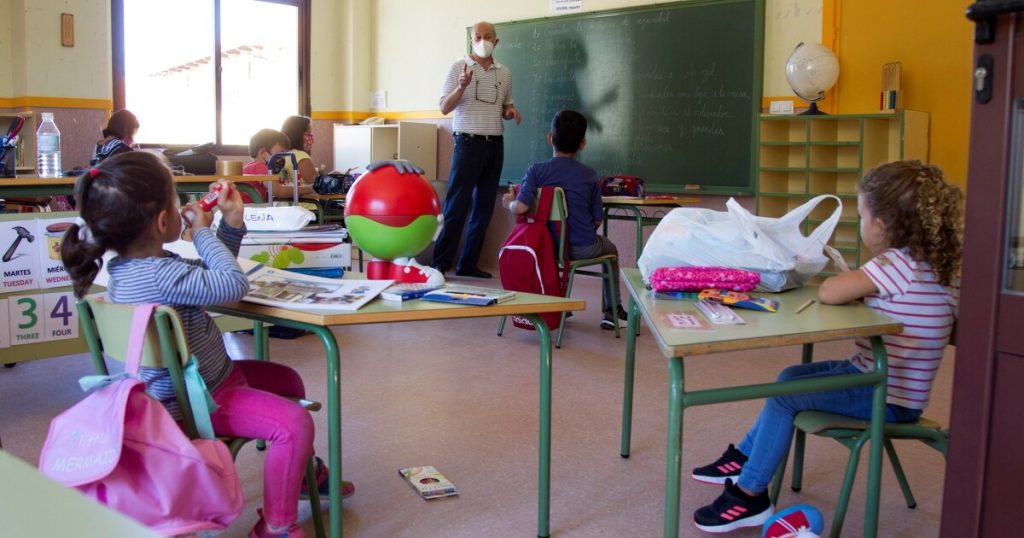Children of immigrants experience mental health issues and discrimination at school, including in kindergarten, according to studies conducted during the years of former President Donald Trump’s harsh anti-immigrant rhetoric and the emergence of the COVID-19 pandemic.
In New York, 168 Latino parents of kindergarten-going children (with an average age of about 4.4 years) were surveyed in 2018–1019 about the effects on their children’s mental health of rhetoric and Trump’s threats toward the unenrolled, especially those. Of Mexican descent.
22% of them answered that children had difficulty concentrating on their tasks at school, compared to 4.3% of children of non-immigrant parents.
“Society was afraid and that reflected on their young children,” said Rita Gabriela Parajas Gonzalez, PhD, a professor at New York University’s Grossman School of Medicine.
The specialist who conducted the study in cooperation with seven colleagues added, and it was recently published in a specialized journal.
Experts encourage teachers and professionals who work with immigrant and Latino children to use trauma-based techniques to strengthen children’s social and emotional skills and deal with stressors beyond their control.
This means listening to and emphasizing children’s feelings, teaching them simple words about feelings and how to recognize them in their minds and bodies.
Additionally, “we must create opportunities for cultural affirmation in the classroom for children to share their stories through art and play,” added the psychologist, who was born in California and has a Mexican daughter.
According to Paragas Gonzalez, the immigration climate may have improved with the arrival of the new president, Democrat Joe Biden, and his promises of change, but “after Trump who called Mexican immigrants killers and rapists, the epidemic came.” The effects were felt on the mental health of high school students.
He mentioned other research, led by Sonia Luther, Professor Emeritus at Teachers College at Columbia University, who along with three colleagues interviewed 14,603 students at 49 schools across the United States between April and June 2020.
It is evident here that during school closures and face-to-face school suspensions imposed by the pandemic, Hispanic students scored the highest rates of depression and vulnerability (24% in 2020 compared to 3.7% in 2018), much more than whites, African Americans, and Asians.
According to the study, the higher rates of depression among Latino students are due to experiences of discrimination and racism.
An eighth-grader mentioned in the survey that his classmates told him he should stop “playing the game”, go home, or they would report him first to the immigration authorities.
The teachers listen to him, but do nothing. A lot of times I think it would be better to be anything, but not Mexican.”
The study adds that other concerns for Latino students in these times of pandemic are health and family work.

“Social media evangelist. Student. Reader. Troublemaker. Typical introvert.”


:quality(85)/cloudfront-us-east-1.images.arcpublishing.com/infobae/76Q3V4IS6W7CAP5TT6MVJGCHMQ.jpg)


:format(jpeg):focal(2425x455:2435x445)/cloudfront-us-east-1.images.arcpublishing.com/gfrmedia/VHMDSLP56BEZDI2PZFVOPDHJGA.JPG)

More Stories
Medicine practiced by men versus medicine practiced by women
The College of Humanities, Social and Educational Sciences celebrates the graduation of 397 male and female students
Japanese ancestral ritual that is an effective and quick cleaning method: in 15 minutes organize your home and help emotional well-being